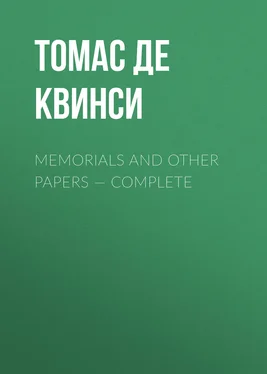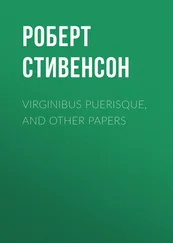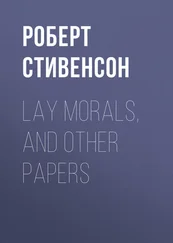Томас Де Квинси - Memorials and Other Papers — Complete
Здесь есть возможность читать онлайн «Томас Де Квинси - Memorials and Other Papers — Complete» — ознакомительный отрывок электронной книги совершенно бесплатно, а после прочтения отрывка купить полную версию. В некоторых случаях можно слушать аудио, скачать через торрент в формате fb2 и присутствует краткое содержание. Жанр: foreign_prose, literature_19, foreign_antique, на английском языке. Описание произведения, (предисловие) а так же отзывы посетителей доступны на портале библиотеки ЛибКат.
- Название:Memorials and Other Papers — Complete
- Автор:
- Жанр:
- Год:неизвестен
- ISBN:нет данных
- Рейтинг книги:5 / 5. Голосов: 1
-
Избранное:Добавить в избранное
- Отзывы:
-
Ваша оценка:
- 100
- 1
- 2
- 3
- 4
- 5
Memorials and Other Papers — Complete: краткое содержание, описание и аннотация
Предлагаем к чтению аннотацию, описание, краткое содержание или предисловие (зависит от того, что написал сам автор книги «Memorials and Other Papers — Complete»). Если вы не нашли необходимую информацию о книге — напишите в комментариях, мы постараемся отыскать её.
Memorials and Other Papers — Complete — читать онлайн ознакомительный отрывок
Ниже представлен текст книги, разбитый по страницам. Система сохранения места последней прочитанной страницы, позволяет с удобством читать онлайн бесплатно книгу «Memorials and Other Papers — Complete», без необходимости каждый раз заново искать на чём Вы остановились. Поставьте закладку, и сможете в любой момент перейти на страницу, на которой закончили чтение.
Интервал:
Закладка:
It might seem useless to call back any fragment of conversations relating to India which passed more than fifty years ago, were it not for two reasons: one of which is this,—that the errors (natural at that time) which I vehemently opposed, not from any greater knowledge that I had, but from closer reflection, are even now the prevailing errors of the English people. My mother, for instance, uniformly spoke of the English as the subverters of ancient thrones. I, on the contrary, insisted that nothing political was ancient in India. Our own original opponents, the Rajahs of Oude and Bengal, had been all upstarts: in the Mysore, again, our more recent opponents, Hyder, and his son Tippoo, were new men altogether, whose grandfathers were quite unknown. Why was it that my mother, why is it that the English public at this day, connect so false an image—that of high, cloudy antiquity —with the thrones of India? It is simply from an old habit of associating the spirit of change and rapid revolution with the activities of Europe; so that, by a natural reaction of thought, the Orient is figured as the home of motionless monotony. In things religious, in habits, in costume, it is so. But so far otherwise in things political, that no instance can be alleged of any dynasty or system of government that has endured beyond a century or two in the East. Taking India in particular, the Mogul dynasty, established by Baber, the great-grandson of Timour, did not subsist in any vigor for two centuries; and yet this was by far the most durable of all established princely houses. Another argument against England urged by my mother (but equally urged by the English people at this day) was, that she had in no eminent sense been a benefactress to India; or, expressing it in words of later date, that the only memorials of our rule, supposing us suddenly ejected from India, would be vast heaps of champagne-bottles. I, on the other hand, alleged that our benefits, like all truly great and lasting benefits (religious benefits, for instance), must not be sought in external memorials of stone and masonry. Higher by far than the Mogul gifts of mile-stones, or travelling stations, or even roads and tanks, were the gifts of security, of peace, of law, and settled order. These blessings were travelling as fast as our rule advanced. I could not then appeal to the cases of Thuggee extirpated, of the Pindanees (full fifteen thousand bloody murderers) forever exterminated, or of the Marhattas bridled forever—a robber nation that previously had descended at intervals with a force of sometimes one hundred and fifty thousand troopers upon the afflicted province of Bengal, and Oude its neighbor; because these were events as yet unborn. But they were the natural extensions of that beneficent system on which I rested my argument. The two terrors of India at that particular time were Holkar and Scindiah (pronounced Sindy ), who were soon cut short in their career by the hostilities which they provoked with us, but would else have proved, in combination, a deadlier scourge to India than either Hyder or his ferocious son. My mother, in fact, a great reader of the poet Cowper, drew from him her notions of Anglo-Indian policy and its effects. Cowper, in his "Task," puts the question,—
"Is India free? and does she wear her plumed
And jewelled turban with a smile of peace,
Or do we grind her still?"
Pretty much the same authority it is which the British public of this day has for its craze upon the subject of English oppression amongst the Hindoos.
My uncle, meantime, who from his Indian experience should reasonably have known so much better, was disposed, from the mere passive habits of hearing and reading unresistingly so many assaults of this tone against our Indian policy, to go along with my mother. But he was too just, when forced into reflection upon the subject, not to bend at times to my way of stating the case for England. Suddenly, however, our Indian discussions were brought to a close by the following incident. My uncle had brought with him to England some Arabian horses, and amongst them a beautiful young Persian mare, called Sumroo, the gentlest of her race. Sumroo it was that he happened to be riding, upon a frosty day. Unused to ice, she came down with him, and broke his right leg. This accident laid him up for a month, during which my mother and I read to him by turns. One book, which one day fell to my share by accident, was De Foe's "Memoirs of a Cavalier." This book attempts to give a picture of the Parliamentary war; but in some places an unfair, and everywhere a most superficial account. I said so; and my uncle, who had an old craze in behalf of the book, opposed me with asperity; and, in the course of what he said, under some movement of ill-temper, he asked me, in a way which I felt to be taunting, how I could consent to waste my time as I did. Without any answering warmth, I explained that my guardians, having quarrelled with me, would not grant for my use anything beyond my school allowance of one hundred pounds per annum. But was it not possible that even this sum might by economy be made to meet the necessities of the case? I replied that, from what I had heard, very probably it was. Would I undertake an Oxford life upon such terms? Most gladly, I said. Upon that opening he spoke to my mother; and the result was, that, within seven days from the above conversation, I found myself entering that time-honored university.
OXFORD
I.
OXFORD
It was in winter, and in the wintry weather of the year 1803, that I first entered Oxford with a view to its vast means of education, or rather with a view to its vast advantages for study. A ludicrous story is told of a young candidate for clerical orders—that, being asked by the bishop's chaplain if he had ever "been to Oxford," as a colloquial expression for having had an academic education, he replied, "No: but he had twice been to Abingdon:" Abingdon being only seven miles distant. In the same sense I might say that once before I had been at Oxford: but that was as a transient visitor with Lord W——, when we were both children. Now, on the contrary, I approached these venerable towers in the character of a student, and with the purpose of a long connection; personally interested in the constitution of the university, and obscurely anticipating that in this city, or at least during the period of my nominal attachment to this academic body, the remoter parts of my future life would unfold before me. All hearts were at this time occupied with the public interests of the country. The "sorrow of the time" was ripening to a second harvest. Napoleon had commenced his Vandal, or rather Hunnish War with Britain, in the spring of this year, about eight months before; and profound public interest it was, into which the very coldest hearts entered, that a little divided with me the else monopolizing awe attached to the solemn act of launching myself upon the world. That expression may seem too strong as applied to one who had already been for many months a houseless wanderer in Wales, and a solitary roamer in the streets of London. But in those situations, it must be remembered, I was an unknown, unacknowledged vagrant; and without money I could hardly run much risk, except of breaking my neck. The perils, the pains, the pleasures, or the obligations, of the world, scarcely exist in a proper sense for him who has no funds. Perfect weakness is often secure; it is by imperfect power, turned against its master, that men are snared and decoyed. Here in Oxford I should be called upon to commence a sort of establishment upon the splendid English scale; here I should share in many duties and responsibilities, and should become henceforth an object of notice to a large society. Now first becoming separately and individually answerable for my conduct, and no longer absorbed into the general unit of a family, I felt myself, for the first time, burthened with the anxieties of a man, and a member of the world.
Читать дальшеИнтервал:
Закладка:
Похожие книги на «Memorials and Other Papers — Complete»
Представляем Вашему вниманию похожие книги на «Memorials and Other Papers — Complete» списком для выбора. Мы отобрали схожую по названию и смыслу литературу в надежде предоставить читателям больше вариантов отыскать новые, интересные, ещё непрочитанные произведения.
Обсуждение, отзывы о книге «Memorials and Other Papers — Complete» и просто собственные мнения читателей. Оставьте ваши комментарии, напишите, что Вы думаете о произведении, его смысле или главных героях. Укажите что конкретно понравилось, а что нет, и почему Вы так считаете.












